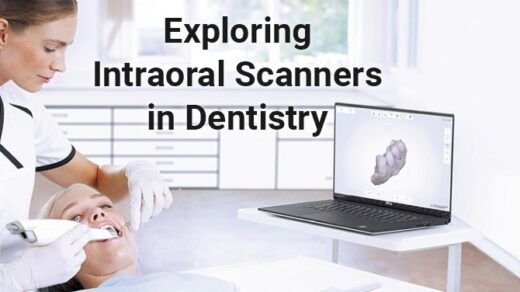Ahh, the early days of your dental career. You’re young. You’re hungry. And most likely, you’re feeling a little anxious as you venture out into the great unknown.
Whether those “early days” were literal days ago or were over a decade ago now, we can all agree that the first few years out of dental school are pretty daunting. In fact, a recent study by Pro Sites revealed that new dentists with practices less than five years old were 20% more likely to encounter nervous patients.
New dentists were also shown to spend much more money in marketing and advertising to build up their client base in those first five years, with 90% of new dentists spending over $500 per month in marketing expenses compared to just 61% of their peers.
Given the data, chances are you’ve already realized that while dental school prepared you in many ways for your new dental career, you still have quite a bit to learn. With that in mind, here are 9 things you probably didn’t learn in dental school.
1. Getting that first job may be harder than expected
It’s the woeful cry of recent grads across all fields and industries – why did we think we would be any different?
“Everyone wants you to have experience, but no one wants to give you that experience.” Ouch.
You may have breezed (or crawled) out of dental school ready to rock, but chances are your future employers won’t see it that way. Mentally prepare yourself to put in the work to research and reach out to a fair number of practices before you land that dream job.
If you have any connections in the area you’d like to practice in (for example, your family dentist, a mentor, or colleague), reach out to them to see if they know local practices who may be looking to bring on a new associate. LinkedIn is also a great resource to identify potential “friends-of-a-friend” you can connect with to discuss job opportunities.
If you don’t have any personal connections, consider contacting dental supply reps in the area (Benco, Patterson, Henry Schein, etc.) as they’ll be familiar with all the dentists in their territory and may have additional insights into which offices are hiring.
Lastly, get in touch with your state and local organizations. Often, these have placement programs or host events like “speed dating”-style interviews for new job-hunting dentists.
2. You’re going to need to build credibility
It’s every new dentist’s worst nightmare. A panicked look on the patient’s face before the words, “Oh, I didn’t realize I was meeting with you… I thought I was seeing the other dentist…”
Well, get ready, because that nightmare is about to become your reality! But don’t hit the Panic Button yet. Fortunately, it’s not as bad as it seems.
Dr. Brittany Bergeron, DDS, a Dentistry Practitioner in Baltimore, shares, “I wish I knew when I was starting out that those questions are part of being new at any practice – not just when you’re starting out in dentistry.”
Any time you’re working with new clientele, you will need to start from scratch to build trust and credibility. One way to tackle this challenge is to increase transparency from the outset by making patient testimonials readily available on your practice’s website.
In a recent study by ProSites, 68% of respondents reported featuring patient reviews on their websites. New dentists with practices with 5 years in business or less ranked these online reviews as particularly important (75%) compared to their more seasoned counterparts (35%).
Utilizing an online scheduling system with the ability for patients to book time with their preferred dentist can also reduce push-back and make this process easier.
3. Prepare to work on your timing
Oh, yes. Long gone are the days of having 2-3 hours to spend on a single filling. In your new role, you’ll likely need to work at a much faster rate than you’re used to.
One of the best things you can do is practice open communication with your new boss. Timing is going to be challenging at first. (If you’re lucky, they’ll remember what it was like to be fresh out of dental school or residency, also!)
Clearly communicate where you’re at and what realistic goals are for your speed ramp-up. Ask about what your boss’ expectations are for procedure time. And remember, never sacrifice accuracy for speed. In time, the speed will come, but chances are those few extra minutes won’t be worth the cost of a serious mistake on a patient.
4. Education is key
Okay, the dental schools may have told you this one, but education is (and will continue to be) essential to your new career.
Dr. Bergeron shares, “I was not aware of just how much we learned in dental school. I think new grads sometimes don’t give themselves enough credit, but you really do leave dental school very prepared.”
Don’t get too cocky now, though, because the education doesn’t stop there. Right off the bat, you’ll find there are areas that you need more experience in.
“For example, I didn’t do a lot of root canals in dental school, so I immediately started taking a lot of CE for these,” Dr. Bergeron remembers. Whatever the gaps in your knowledge may be, put together a plan and budget to address them.
Also, never feel silly for asking questions. Especially while you are still in associate or residency positions, you are surrounded by so many resources, so be sure to take advantage of them and take in as much information as possible.
5. You can’t control everything
One of the most important things you can learn as you begin your new dental career is that you can’t control everything.
As much as you may want everything to fit nice and neatly in a little box or to follow protocol perfectly, it never will. Sometimes things just happen, and all that’s in your control is how you respond.
Right away, you’ll see this come up in patient treatment, but it’s also a lesson that will have even greater value later down the line when you start your own practice. So learn to roll with the punches, step back, and take a deep breath. (You’ve got this!)
6. Learn the administrative side of the office as well
If you’re planning to ultimately open or acquire your own practice, learning the administrative side of the office is invaluable. After all, at the core of building a strong dental practice is learning how to be a successful business owner – not just a great dentist.
Dr. Bergeron recalls how in the early days of opening her own practice, her Office Manager left on extended medical leave. Because she was the only person who knew how to handle administrative tasks like submitting insurance claims, providing patient estimates, and balancing accounts, Dr. Bergeron had to immediately shift focus to learn these duties so she’d be able to properly train a replacement.
“Once I learned that, it really changed the way I practiced, scheduled, and talked to patients – and that made a really big difference for me as an owner just understanding how my business ran.”
Not only that, but in a time when horror stories of embezzlement and dishonest staff are at every turn, the only way to avoid these pitfalls is to have the tools and knowledge to be able to mitigate that risk yourself.
7. Don’t underestimate the impact of compassion and kindness
Dental anxiety is a real issue facing your patients. Not convinced? Australian National Dental Foundation Study of over 18,000 people worldwide found that a whopping 61% of respondents reported suffering from dental fear.
With such a high prevalence of dental anxiety, there’s a lot that dentists and dental teams can do to make the experience easier for their patients.
Dr. Bergeron advises new dentists, “Avoid treatment surprises, financial surprises – let patients feel like they’re involved and have a say in their dental treatment.”
She recalls one patient in particular commenting on the friendliness of the staff at her practice. “My old dentist always used to make me feel bad. You’re saying all the same things, but in a different way,” they shared.
While dentists are healthcare providers, their practices are also businesses. “And believe it or not,” Dr. Bergeron jokes, “being mean to people is bad for business.”
8. Organized dentistry is your friend
If you’re not already, get connected through organized dentistry. Find your state and local associations, or even niche groups like the American Association for Women Dentists (AAWD).
These groups provide incredible opportunities for mentorship and networking with other dental professionals facing the same challenges you are.
Organizations can also help you stay on top of new product and technology developments in the field, allowing you to make more informed decisions and expand your product offerings to provide the best care to your patients.
It’s very easy to get stuck in a bubble of being absorbed only in what your practice is doing. But by getting involved in these types of organizations, you can become an industry expert and offer greater value to your clientele.
9. Be confident
Last but not least, be confident.
Dr. Bergeron adds, “And if you’re not confident, do whatever you need to do to get there, because you will get there.”
While you may have to “fake it ‘til you make it” at the outset, practice really does make perfect. Trust in yourself and your abilities, invest where your experience may be lacking, and confidently (and compassionately!) address patient concerns, and you’ll be on the path to success in no time.
Conclusion
Dental school taught you a lot. And while there’s still a lot to learn, we have no doubt that you’ll catch on in no time. For more tips for new dentists to improve your patient relationships and grow your practice, check out the ProSites blog here.
Wondering how you stack up against other new dentists when it comes to promoting your practice? Download the 2022 State of Dental Marketing for industry insights and valuable takeaways from practices across the country.






